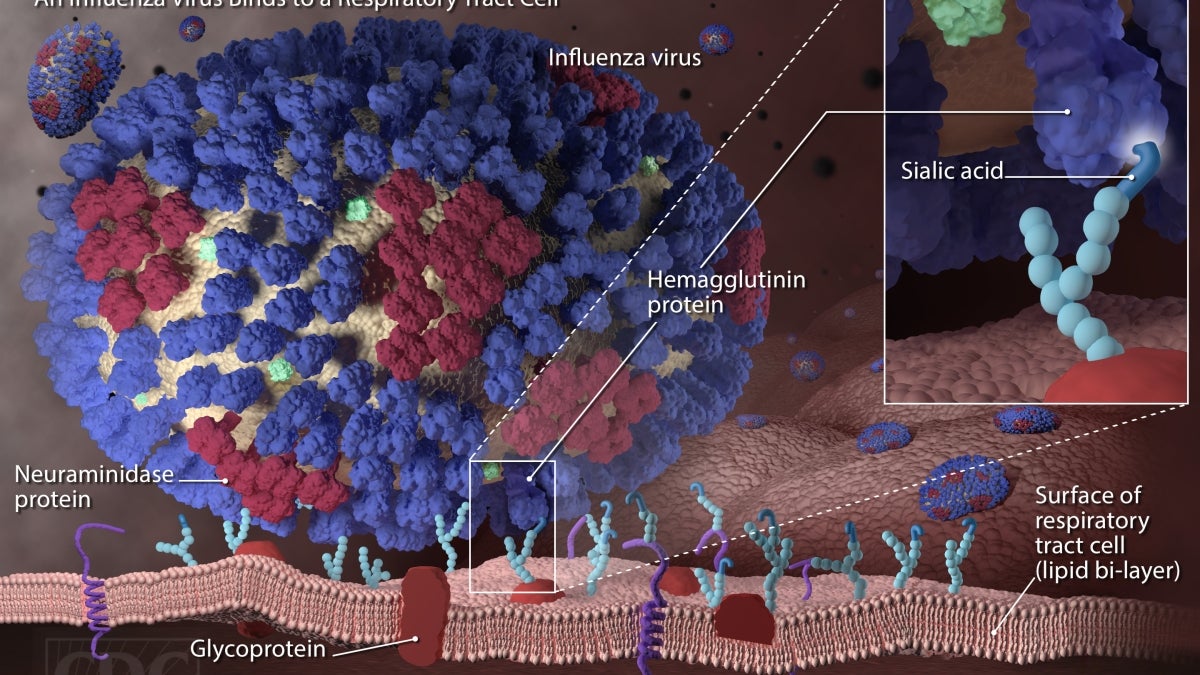People die from the flu every year in the U.S. — 4,605 perished in 2014.
The largest at-risk groups for developing complications from the flu are the elderly, young children, pregnant women, American Indians and Alaskan Natives, according to the Centers for Disease Control and Prevention.
The rest of the population is at high risk of enduring several days to weeks of flu-induced misery … and spreading it to others. But there are methods to decrease the chances of getting sidelined by the flu.
Dr. Stephanie Schroeder, M.D., is the Arizona State University Health Services chief of medical staff. Here she answers some common questions people have about the flu and prevention.
Question: First, what exactly is the flu?
Answer: The flu is a contagious respiratory illness caused by influenza viruses that infect the nose, throat and lungs. It can cause mild to severe illness, and at times can lead to death.
Q: How does the flu spread?
A: Most experts believe that flu viruses spread mainly by droplets made when people with flu cough, sneeze or talk. These droplets can land in the mouths or noses of people who are nearby. Less often, a person might also get flu by touching a surface or object that has flu virus on it and then touching their own mouth, eyes or possibly their nose.
Q: When is flu season?
A: In the Northern Hemisphere, flu season is typically from October through March, with peak activity in February, but it can last up until May.
Q: What can people do to avoid the flu or prevent its spread?
A: The best way to prevent the flu is by getting a flu vaccine each year. Frequent hand-washing and use of hand sanitizer can cut down on the transmission of the virus, as is staying home when you are ill.
Q: What are the prevailing myths or misinformation surrounding the flu and/or the vaccine?
A: You can catch the flu from the vaccine … Healthy people don’t need to be vaccinated … Getting the flu vaccine is all you need to do to protect yourself from the flu … The flu is just a bad cold … You can’t spread the flu when you are feeling fine … You don’t need to get the flu shot every year … If you have the flu with a high fever for more than a day or two, you need antibiotics … It hurts to get the flu shot.
Q: Students are the largest population on campus, but many don’t get vaccinated. Why?
A: A lot of students tell us that they are too busy to get the flu vaccine; they didn’t know where to get it, or felt they didn’t have the money to pay for it. A lot of students decline to get the flu vaccine when we offer it, because:
“I don’t like needles.”
“I have never gotten flu.”
“I got the flu last time I got the flu shot.”
“My mom doesn’t believe in vaccines.”
“I don’t believe in vaccines.”
Q: How effective is this year’s flu vaccine?
A: How well the flu vaccine works varies every year. The final data are still out for this season, but preliminary data show that the match of the strains in this season’s vaccine is close to what we are currently seeing in people affected with the flu. Moreover, the symptoms of flu are less severe, even if you get the flu after you have been vaccinated.
Q: Where can students get vaccinated?
A: Students, faculty and staff can all stop by Health Services at any of the campuses on a walk-in basis or make an appointment to lessen any potential wait time.
Q: How much does the vaccine cost?
A: The vaccine cost this year is $20 for self-pay, covered by almost all insurances and by the Bridge Plan.
More Health and medicine

Human-centered technology embraced at ASU Digital Health Summit
Digital health technology is advancing at lightning speed, but the innovation requires a human touch to ensure that everyone…

Ancient DNA could help to understand recent tuberculosis outbreak in Kansas
For over a year, Wyandotte and Johnson counties in Kansas City, Kansas, have been fighting an outbreak of tuberculosis (TB) that…

ASU researchers propose unifying model of Alzheimer’s disease
In a groundbreaking theory, scientists at Arizona State University's Biodesign Institute propose a unifying explanation for the…
